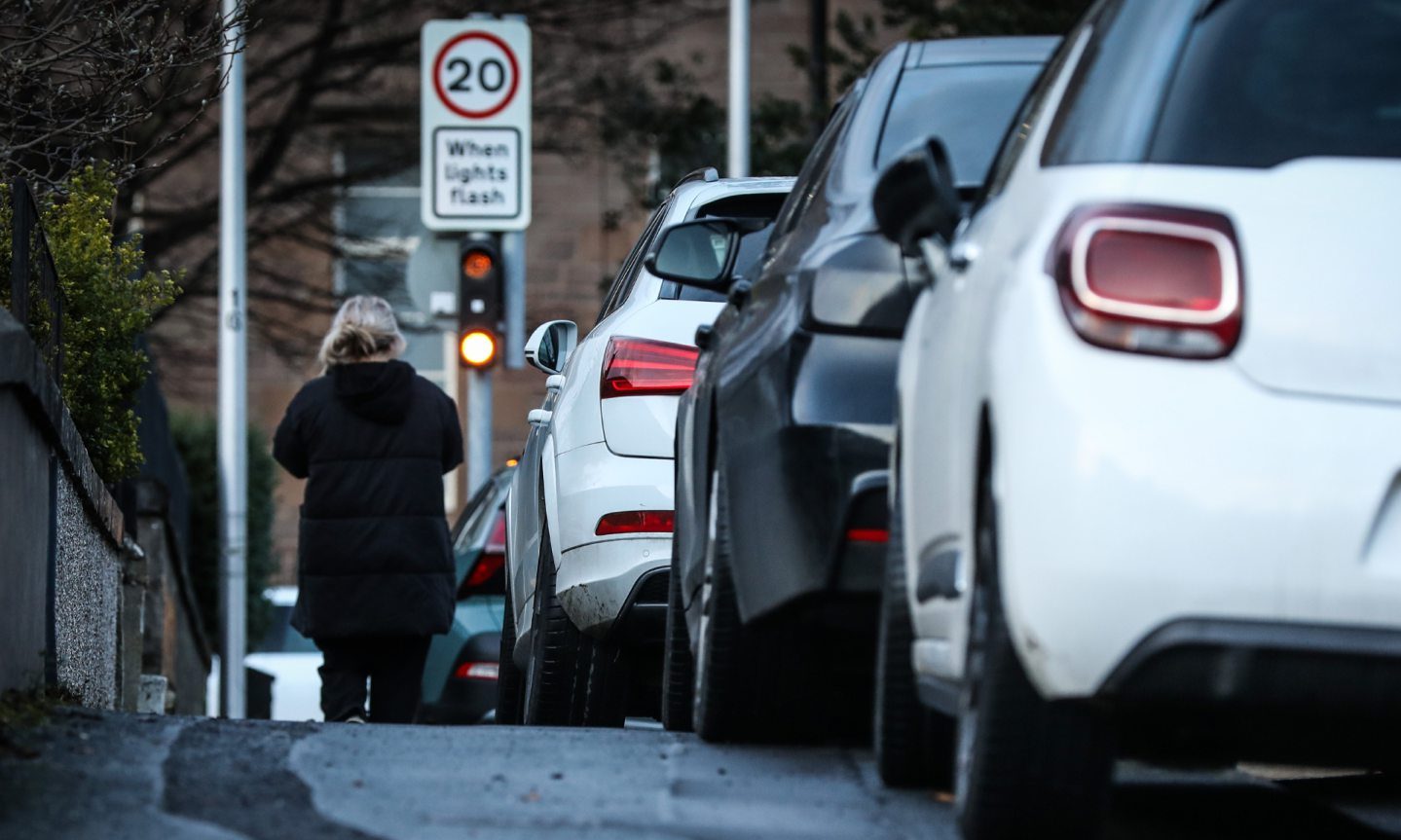Perth and Kinross parking attendants dished out 81 fines for pavement parking last week.
Twenty of the penalty charge notices were issued on day one of it being outlawed locally.
And it comes after more than 850 warning notices were given to motorists across the region in the run-up to last week.
A Perth and Kinross Council spokesman said the fines appeared to be having the desired effect.
Councillor Eric Drysdale, convener of the economy and infrastructure committee, said: “We issued 20 penalty charge notices on the first day, but just 81 over the course of the whole week.
“Our parking attendants have had a really positive response from residents in areas where pavement parking is a particular problem.”
Perth and Kinross residents can report pavement parking concerns
Pavement parking, double parking and parking across dropped kerbs is prohibited under The Transport (Scotland) Act 2019.
But it’s been left up to local councils to decide when to start enforcing the rules.
Councillor Eric Drysdale. Image: Steve MacDougall/DC Thomson.
Drivers who are caught parking on pavements in Perth and Kinross now face fines of £100.
This can be reduced to £50 if they pay within 14 days.
Double parking and parking at dropped kerbs are also forbidden.
And vehicles which have more than one wheel on the pavement can expect to receive a ticket.
The council says it will keep the situation under review.
If it identifies specific streets where enforcement brings no actual benefit to pedestrians, it may introduce exemptions.
Motorists face £100 penalty charge notices. Image: DC Thomson.
Residents can also report pavement parking, double parking, and parking at dropped crossings using the My PKC service.
Changes intended to support people with children and disabilities
Mr Drysdale underlined the reasons for the ban.
“Pavement parking is a real hazard for people with disabilities or those pushing prams or buggies,” he said.
“Enforcing the ban makes it easier for these people and reduces damage to our pavements.”
Some exceptions to the ban are permitted under the Act.
These include 999 vehicles and people who are assisting at an accident or breakdown.
Delivery drivers may also be exempt if they’re dropping off or collecting goods, providing they are only there for a few minutes.
